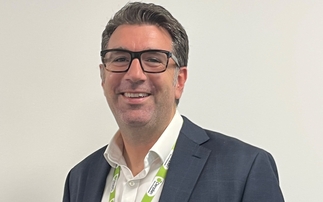Healthcare cash plans provide an ideal low cost solution for clients on a budget. Peter Madigan explains
Time and again 'budget customers' have found themselves at a loss when trying to obtain appropriate healthcare provision at a price they can afford. In exchange for manageable premiums, consumers have traditionally had to sacrifice the most comprehensive aspects of their cover, often the very attraction that leads consumers to insure themselves in the first place.
Healthcare cash plans have managed to address this problem by providing a cost-effective solution for consumers on a variety of budgets for over 100 years. Today, while the private medical insurance (PMI) market is seeing static sales figures, a rise in premiums and is faced with an uncertain future, things are looking up for the cash plan industry.
Spiralling cost
This optimism is born out of several factors that have worked together in recent years to boost consumer awareness of the value of a cash plan. The Government has made it increasingly difficult for the public to access free primary care by withdrawing its funding role from areas such as dental and optical treatment, the two core areas that constitute the majority of cash plan claims. At the same time there has been growing public dissatisfaction about the state of the NHS and the apparent failure of increased investment to bring about a better standard of healthcare. Yet perhaps the greatest boost that the cash plan market has received has come from the spiralling cost of PMI and the effect this has had in pricing many customers out of the market.
Research conducted by Laing and Buisson suggests that after a period of steady growth through the second half of the 1990s, cash plan sales have faltered recently with a slight drop in contributor numbers over the last four years. Over the same period however, the largest cash plan providers have experienced buoyant, and in some cases, record uptake figures. 2004 is already Westfield Health's best ever year, out-performing 2003 which saw turnover rise by 13% as over 1,400 businesses took out plans. With these mixed signals emanating from the market, it is hardly surprising that intermediaries are being deterred from getting involved.
Potential new business streams are emerging not only from the lower income sector, but also from PMI customers who have abandoned their policies due to rocketing premiums. With only 8% of the UK population covered by a cash plan, it seems there are rich pickings to be had for any intermediary who would care to take a closer look at this much-neglected and often misunderstood market.
A common misconception is that cash plans are a solution solely for low income clients but, as Raman Sankaran, head of marketing at HealthSure claims: "They're not just an option for people on a budget. They're no longer regarded as a poor man's private medical insurance. They're now looked at as a truly complementary option that can work alongside it."
Jill Davies, executive director at Westfield Health agrees: "The image of cash plans as a welfare-type product is dated. We must come away from class distinctions and recognise their convenience value."
Intermediaries have been reluctant to associate themselves with cash plans due to the limited commission possibilities. "IFAs have generally ignored the opportunity that cash plans present due to both a lack of understanding of the role of the product and also due to what they have seen as lower commission earning opportunities," says Jeremy Chadwick, head of public relations and communications for HSA. With several providers offering schemes that begin at under £1 a week, their reluctance is understandable.
Just 10% of cash plans are sold through intermediaries and providers are keen to entice more advisers into the market claiming there are benefits, both financial and otherwise, to warrant their interest.
"Although the initial commission potential of cash plans may not look very meaty, the life expectancy of a cash plan is longer than that of a private medical insurance policy. An adviser could have commission coming in for several years," says Sankaran. "If you also consider a corporate client that may want a cash plan scheme as an employee benefit for 1,000 staff, the money to be made, even on a £1 per person per week plan, could be quite substantial."
While the corporate sector may hold some promise for advisers, it appears there is little to merit their attention in individual cash plans as there is simply not enough money to be made.
"An individual cash plan could be a useful entry product for an adviser if given the right client," claims Dale Tranter, research manager at Sesame. "If you have a young client who is starting his career and can't afford private medical insurance then a cash plan is a good starting point. As he moves up the career ladder and his income changes accordingly, he may move onto private medical insurance. In this instance, an individual plan would be worth advising on."
Unfortunately clients like this are rare, but with rising costs making PMI more inaccessible, cash plans are emerging as the popular alternative. Under Financial Services Authority (FSA) regulation, advisers will be obliged to direct clients toward the product most suitable to their needs. Could this force intermediaries into recommending cash plans in some situations?
"Regulation should act as a consciousness-raising exercise for IFAs as they realise the possibilities for them in the cash plan market," says Tranter. "Regulation in itself is a good thing as it makes advisers address customer requirements," says Ray Lawson, IFA at JLS Healthcare, "but the new rules will mean that advisers have to spend the same amount of time advising an individual as a corporate client. This is clearly not a cost-effective use of an adviser's time."
Some of the larger providers are taking active steps to illustrate the benefits of cash plans to advisers. Westfield Health has an intermediary team to support, train and suggest new sales ideas to IFAs, while HSA offers marketing support and field training.
Hazy limitations
Even with these support systems in place it is hard to envisage more advisers moving into the market without either a more attractive commission rate, or a major innovation in the nature of the product to make cash plans more applicable to the everyday agenda of advisers. While some speculate what form any innovation should take, both providers and intermediaries agree that the traditional definitions of cash plans and PMI policies are becoming increasingly dated.
"Cash plans are becoming ever more inclusive and are starting to encroach on areas that have traditionally been covered under a private medical insurance policy," says Tranter. Top end cash plans now offer a range of services such as MRI and PET scans that were previously only available through PMI.
PMI is mirroring this trend by offering complementary therapies that were previously considered the preserve of the cash plan. "Increasingly the gap between the two products has narrowed so that there is now significant overlap in areas such as diagnostic care and physiotherapy benefits," says Chadwick.
The increasingly hazy limitations of the two products raises the possibility that one day a single hybrid product may emerge that amalgamates PMI and cash plans into a single 'deluxe' product. If cash plans were no longer cross-sold as a complement to PMI then they would finally be considered as solely an option for the budget customer.
While the future looks healthy for the whole of the cash plan sector, it appears that the few intermediaries who are involved intend to restrict themselves to the corporate sector and leave individual business to be dealt with by the providers directly.
While the prospects for cash plans look good, any dramatic increase in uptake could be bad news for advisers who specialise in PMI. Although low income customers are predicted to continue investing in cash plans while PMI remains unaffordable, existing PMI customers may also downgrade as premiums rise. Advisers may find themselves losing the bigger commissions offered by PMI and exchanging them for substantially smaller cash plan returns.
A major development that may impact the entire cash plan sector is the entry of high street retailers into the market. Earlier this year, Asda launched a cash plan scheme offering to cover up to 50% of individual customers' medical costs. Although Asda is currently focused solely on the individual market, some providers predict that the arrival of such a high profile company would benefit the corporate sector.
"The entry of Asda, or any big distribution route that succeeds in raising awareness about cash plans, can only be a good thing," says Davies. "It will lead customers to think about products and to compare the products out there. This will benefit the providers who offer the best products at the best value."
This presents a somewhat unusual picture. The cash plan market is ripe for growth with providers actively attempting to attract more intermediaries. The corporate market could be relatively profitable but advisers still seem uninterested, yet if PMI continues to see premiums increase 10% year-on-year, cash plans may begin to constitute a much bigger part of advisers' portfolios.
"The cash plan market should thrive as access to free complementary therapies gets harder and as employers become evermore aware of the importance of a healthy workforce. The prospects for the future are excellent," says Davies.
COVER notes
• Dental and optical treatment are the two core areas that constitute the majority of cash plan claims
• Potential new business streams are emerging not only from the lower income sector, but also from PMI customers who have abandoned their policies due to rocketing premiums.
• Cash plans are becoming ever more inclusive and are starting to encroach on areas that have traditionally been covered under a PMI policy.











